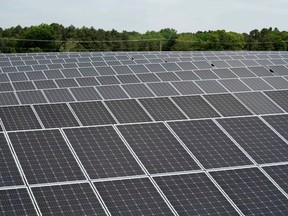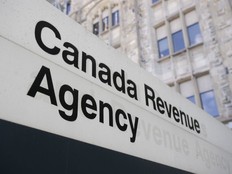
Article content
Many western governments including Prime Minister Justin Trudeau’s have shifted from a pandemic focus to a “green economic recovery.” According to advocates, these recovery plans allow countries to “build back better” by simultaneously improving the economy and reducing greenhouse gas emissions (GHGs).
Advertisement 2
Article content
But a recent study published by the National Bureau of Economic Research (NBER) by noted economists Timothy Fitzgerald and Casey Mulligan found that green recovery plans in the United States will not improve economic growth but rather impose significant costs on Americans. Canadians should take note, since our green plans are actually more extensive, which means Canadians may suffer even larger costs than our southern neighbours.
Article content
The study looks at several aspects of the U.S. green recovery plan including changes in fuel efficiency standards for all new vehicles, replacing fossil fuel-produced electricity with clean energy sources, and the creation of new electricity generation capacity (using wind and solar) to accommodate mandated increases in electric vehicles (EVs).
Article content
Advertisement 3
Article content
It’s important to recognize how ambitious — some might say unrealistic — some of these initiatives are, particularly in terms of timing. Consider, for instance, that the Biden administration is requiring that 50% of all new vehicle sales by 2030 (only seven years away) be electric, hydrogen or plug-in hybrids. And that the U.S. establish an emissions-free power system — that is, the complete elimination of fossil fuels — by 2035.
Here at home, Ottawa has mandated the phase-out of conventional coal-fired electricity generation and wants renewable energy sources to achieve 90% of non-emitting electricity generation by 2030. The Trudeau government has also set a sales target requiring all passenger cars, SUVs and trucks sold in Canada in 2035 to be electric. In 2021, fully electric and plug-in hybrid vehicles comprised just 5.2% of new car registrations.
Advertisement 4
Article content
The NBER study evaluates the economic costs of Biden’s green plan (described above) and concludes it “will require more inputs to produce the same outputs, resulting in recurring costs of up to $483 billion per year.” In other words, the U.S. economy will spend $483 billion more than it does now annually to produce the same level of output, which means it will be more expensive to produce the same amount of goods and services.
Those extra costs mean the U.S. economy will be less effective at producing goods and services people demand, and those goods and services will be available only at higher costs, resulting in lower living standards. According to the study, the green recovery plans in the U.S. will reduce the country’s Gross Domestic Product (inflation-adjusted) by 2% to 3%.
Advertisement 5
Article content
This is just one study on top of many published over the last few years showing the enormous costs green energy plans in the U.S. and Canada will impose on citizens, and yet politicians and advocates on both sides of the border continue to argue that these plans will improve the economy.
That’s not to say governments can’t respond to climate change, particularly with programs encouraging adaptation and risk mitigation. However, any action by government should be rooted in an empirical evaluation of the likely costs and benefits, and then transparently shared with the public.
— Elmira Aliakbari and Jason Clemens are economists with the Fraser Institute.
OPINION: 'Green' recovery plans will impose substantial costs on economy - Toronto Sun
Read More





Comments
Postmedia is committed to maintaining a lively but civil forum for discussion and encourage all readers to share their views on our articles. Comments may take up to an hour for moderation before appearing on the site. We ask you to keep your comments relevant and respectful. We have enabled email notifications—you will now receive an email if you receive a reply to your comment, there is an update to a comment thread you follow or if a user you follow comments. Visit our Community Guidelines for more information and details on how to adjust your email settings.
Join the Conversation